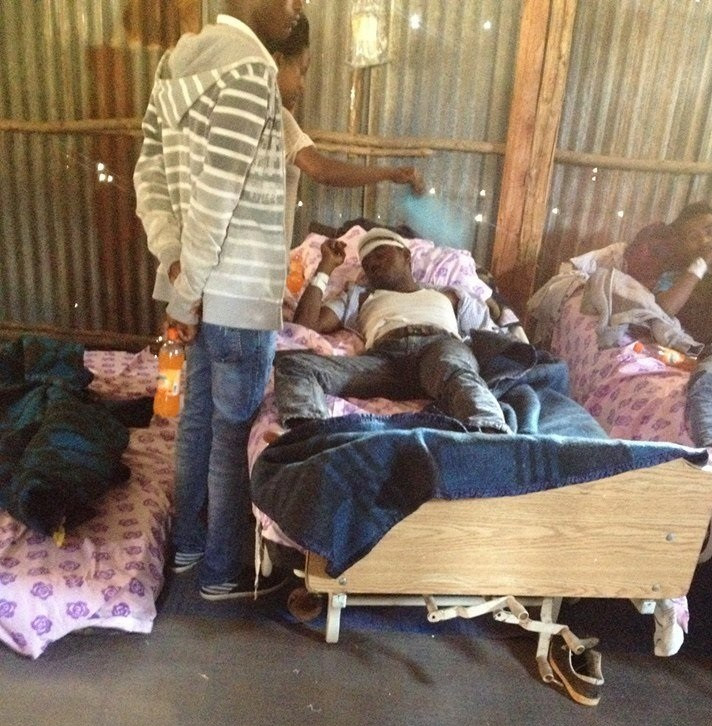Oromo protesters: 'We are still on the streets because we want self-rule'

Hundreds of people from Oromia, Ethiopia's largest state, are still protesting on the streets calling for self-rule. An activist who spoke to IBTimes UK on condition of anonymity explained that Oromo people, Ethiopia's biggest ethnic group, were also protesting against the alleged violence carried out by security forces against demonstrators.
Protesters in Oromia first took to the streets in November 2015 to voice their dissent against a government draft plan that aimed to expand the boundaries of the capital Addis Ababa. They argued the so-called "Addis Ababa master plan" would lead to forced evictions of Oromo farmers who will lose their land and would undermine the survival of the Oromo culture and language.
Who are the Oromo people?
The Oromo people are Ethiopia's largest ethnic group and their population amounts to more than 25 million (around 35% of Ethiopia's total population). They originated in the Horn of Africa, where they are believed to have lived for millennia.
Oromo people speak Afaan Oromoo, as well as Amharic, Tigrinya, Gurange and Omotic languages. They are mainly Christian and Muslim, while only 3% still follow the traditional religion based on the worshipping of the god, Waaq.
In 1973, Ethiopian Oromo created the Oromo Liberation Front (OLF), which stemmed from the discontent over a perceived marginalisation by the government and to fight the hegemony of the Amhara people, another large ethnic group in Ethiopia.
OLF – still active today – also calls for the self-determination of the Oromo people. It has been deemed as a terror organisation that carried out violent acts against people in Ethiopia, Somalia and Kenya. The group has always denied such allegations, claiming its mission is to terminate "a century of oppression" against the Oromos.
The Ethiopian government scrapped the master plan following increasing agitation which activists claimed led to the death of at least 200 people.
However, Oromo people have continued their protest arguing, among other things, that they did not trust the authorities.
"The issue of the master plan was only an immediate cause," a source close to the campaigners said. "The root causes are real demands for Oromo self-rule, democracy and rule of law, among others and the government has continued to respond violently."
The activist also claimed that during student protests which occurred on 8 March, police allegedly arrested more than 50 people and injured many.
"Student protests occurred at some large universities including Addis Ababa University, Jima University and Wallaga University," the source added.
"At Addis Ababa , Oromo students demonstrated for the second round in front of the US embassy chanting 'we are not terrorists, we are Oromo, stop the killings in Oromia'. In Wallaga, government forces beat and injured many students. Hospital beds were overflowing with injured students and ambulances were prevented from taking victims to hospitals in other cities around that part of Oromia," the source alleged.
Government dismisses allegations of violence
The Ethiopian embassy in London has not responded to a request for comment on the fresh allegations.
On 21 February, Human Rights Watch (HRW) released a report warning that at least 200 people had been killed with further arrests of Oromo protesters by security forces, including the military.
However, Ethiopia dismissed the allegations with an official telling IBTimes UK the HRW report was "abysmal propaganda." The government claimed the death toll was much lower than 200 but did not give a specific figure. Protesters were also accused of trying to secede and create an independent Oromia state.
An earlier statement by the Ethiopian embassy sent to IBTimes UK stated that the government engaged in public consultations which resulted in the decision to scrap the master plan. Authorities also launched an investigation to identify people behind "corrupt land acquisition practices", loss of innocent lives and damage to private and public properties. The investigation has led to a number of arrests.
© Copyright IBTimes 2025. All rights reserved.






















